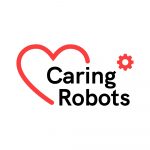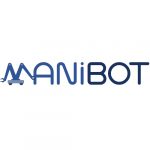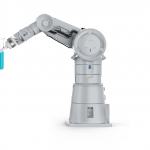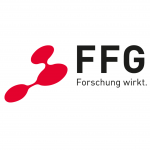Modeling and High-Precision Control of a Permanent Magnet Linear Synchronous Motor2021 - 2025
An efficient modeling and control approach is being developed in this project for permanent magnet linear motors with arbitrarily curved segments. Based on a highly accurate model, energy-efficient currents are calculated to ensure precise force generation for shuttle movement. By employing a learning-based control method, high-precision position control is achieved in both single- and multi-shuttle operation, even at close or varying distances between shuttles. Read more →
LunarAssembly2025 - 2028
The LunarAssembly project treats a fundamental scientific challenge, namely the teleoperation of robotic systems under large time delays, motivated by a scenario of remote assembly on the Moon. Read more →

Caring Robots // Robotic Care2022 - 2027
Our aim is to re-imagine robotic technology in care by developing technology that is useful, safe, meaningful, and wanted, through a design process that involves caregivers, people in care, care organizations, and other stakeholders. Read more →

MANiBOT2023 - 2026
Advancing the physical intelligence and performance of roBOTs towards human-like bi-manual objects MANipulation Read more →

TraceBot2021 - 2025
Traceable Robotic Handling of Sterile Medical Products Read more →

iChores2022 - 2025
Intuitive Collaboration with Household Robots in Everyday Settings Read more →

Development of the AI-based autonomous task planning and robot teaching solution for highly complex manufacturing assembly process2024 - 2027
The project aims to develop complex manipulation skills with dual arm manipulaltors for industrial manufacturing and assembly processes. Read more →

TUW/DLR Joint Laboratory on Human Centered Robotics2024 - 2026
The TUW-DLR Joint Laboratory on Human Centered Robotics is a virtual Competence Center between TU Wien and the German Aerospace Center (DLR). The mission of the Joint Laboratory is to conduct internationally leading research in the area of Human Centered Robotics with a particular focus on real-time control and machine learning in human-robot interaction. Read more →

HiFliTE2024 - 2025
The HiFliTE (Humanoid in-Flight Task Execution) project aims to make two-legged robots capable of performing tasks that are not feasible for the robot because of its structure's limits (e.g., height, joint position limits, or lack of limbs) by exploiting the flight phase of a jump. Inspired by humans, the idea is to control one robot's end-effector to perform a defined task while the rest of the body stabilizes the robot in the flight phase and prepares it for landing. Read more →

HängMan2024 - 2025
The HängMan project aims at a novel technical solution for maintenance and in-contact inspection of large-scale infrastructure and industrial facilities, which require an operation in hardly accessible areas in large height. The envisioned system consists of a motorized base unit equipped with propellers and a manipulator arm. Read more →